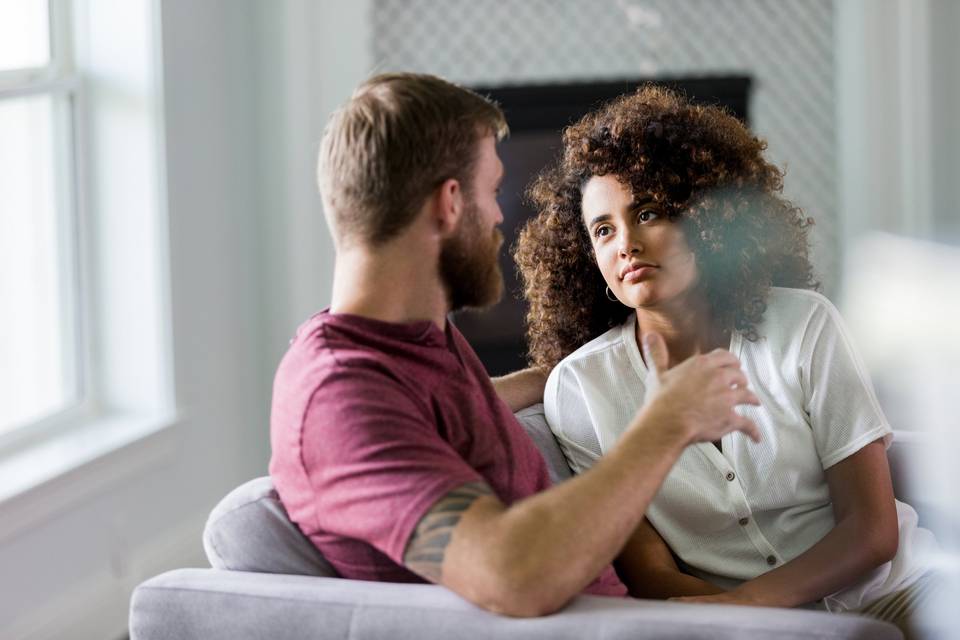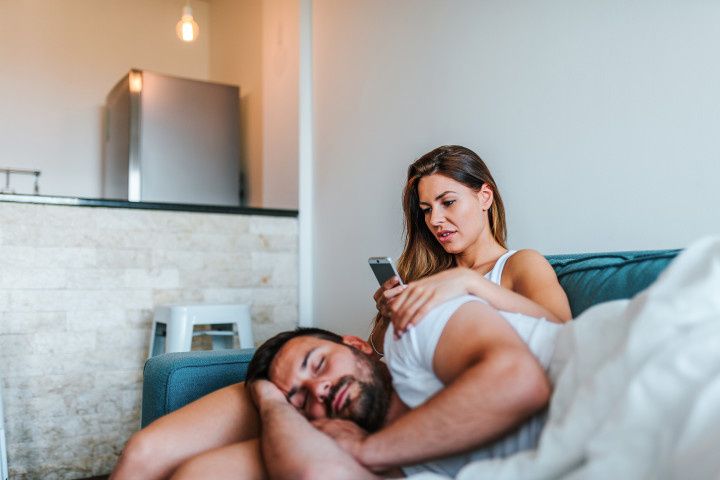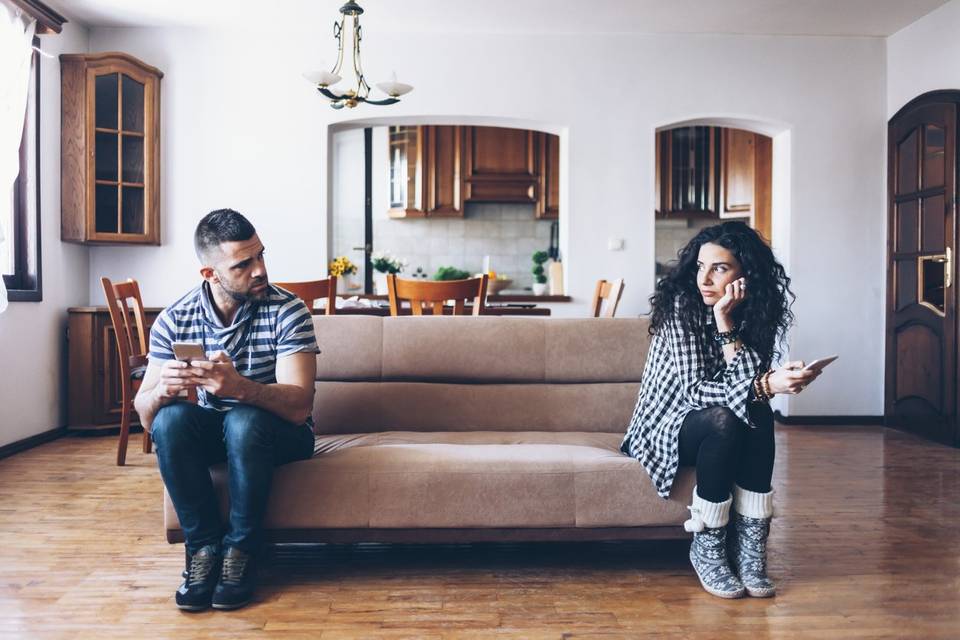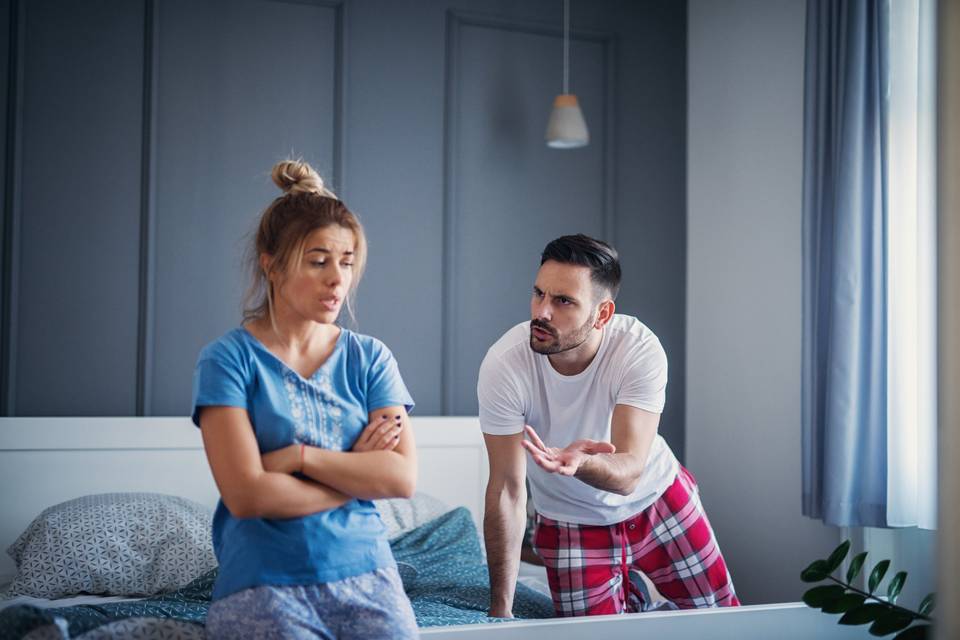6 Ways to Help Your Partner Cope With Depression
If your partner is suffering from depression, there are ways to provide support. Here, experts share their advice.
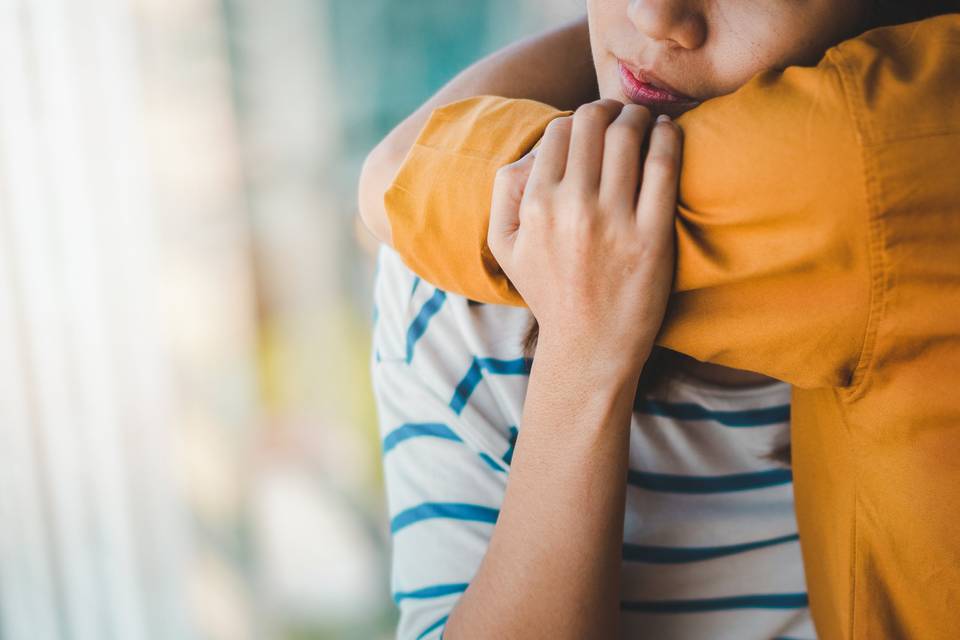

Chances are, someone you know suffers from clinical depression, which affects an estimated 17.3 million American adults and is almost twice as prevalent in women than men, according to the Depression and Bipolar Support Alliance. This mood disorder, which leaves the sufferer with a persistent feeling of sadness and a loss of interest in activities and endeavors that they once enjoyed, is indifferent to intelligence, social status, or relative privilege, notes Laura Kleinman, LCSW ,a psychotherapist in private practice in New York City. “It’s an encompassing energy, and it makes things harder, more confusing and more overwhelming than it seems like it should be from the outside.”
Luckily, mental health in general is receiving a well-deserved spotlight as a result of the pandemic, which has tripled the rate of depression in the U.S., according to a September 2020 study published in JAMA Network Open. “For people who lost loved ones, routines, financial standing, the distractions and simple joys of everyday life, depression can set in because there isn’t really an end in sight for many of those things, even post vaccine and herd immunity,” says Kleinman. “Many people are grieving ‘soft losses’ as well as definable ones, and grief prolonged, without interruption or distraction, can ferment into depression.”
If you’re in a serious relationship, it can be hard to decipher signs of general sadness over the pandemic and the hardships it’s brought on from true depression in your partner. Some noticeable signs you might see if your partner is suffering from depression include a lack of interest in things they used to enjoy doing, any appetite changes, which could be overeating or not eating as much as they used to, explains Kylie O’Driscoll, LAMFT, a clinician at The Berman Center in Atlanta, Georgia. Also, any digestive issues could be a sign as well.
While mental health experts feel strongly that partner’s should not feel responsible for, or for curing, their significant other’s depression, there are ways you can help a partner with depression. Here is some of their best advice.
Create an open environment for discussion.
Engage your partner in conversation in a way that invites them to share their thoughts and feelings freely, without judgement, suggests Mayra Mendez, Ph.D., LMFT, a licensed psychotherapist and program coordinator for intellectual and developmental disabilities and mental health services at Providence Saint John's Child and Family Development Center in Santa Monica, California. “Find naturally occurring opportunities for conversations that evoke comfort, lack stressful content, and reinforce a hopeful outcome and use non-judgmental, non-punitive language,” she says. “Take the time to listen to your partner and reflect what you hear as a way of showing that you are listening, and you are interested in what is being said..”
Be inquisitive.
Don’t be afraid to ask questions, but have patience when and if it takes your partner a few moments to answer. Tom Jones, APC, MAMFT suggests slowing your speaking patterns so that you’re careful not to overwhelm your partner and sidetrack the purpose of the conversation. “Be sure to ask whether or not they are open to advice or feedback rather than offering it up right away, otherwise you're going to end up being frustrated and they're going to feel rushed,” he says.
Choose positive activities.
Dr. Mendez recommends providing your partner with goal-directed behaviors that yield positive results, such as exercise, a hobby of their preferred interest, and interacting with others. “This is a cognitive-behavioral based strategy that focuses on helping your partner shift from negative thoughts that further reinforce feelings of depression to experiences that bring joy,” she says.
She recommends avoiding behaviors that can do the opposite, such as drinking alcohol. “Alcohol is a depressant and while the initial effect might create a state of relaxation and escape, the after-effects will worsen depressive symptoms,” she adds.
Do a spontaneous act of kindness.
“It can be overwhelming for someone who is depressed to take care of some details, or initiate activities that would be helpful to themselves,” explains Kleinman. “It can mean a world of difference if you can take care of something that needs taking care of, suggest a walk, and drive them somewhere you know they enjoy, give them reassuring non verbal affection if that is their love language, or make time for a serious conversation if that’s what they respond to.”
Encourage support for seeking professional help.
“Psychotherapy can provide a safe and supportive environment to explore feelings, learn new coping strategies, and consider problem solving options,” says Dr. Mendez. She urges partners to help their significant other find access to reliable and accurate information about depression. “Offer support to search for a mental health professional but support and empower your partner to make intervention and treatment decisions,” she says. “The most effective and successful therapy is that entered voluntarily and with intention.”
Remember there is only so much you can do.
The only person who can truly pull themselves out of a depressive episode is the person with depression, notes Jones. For this reason, he explains that it's OK to let someone be in the space that they are in. “This step is surprisingly difficult for many people as we can often feel uncomfortable with the negative feelings of others,” he says. “If this is the case for you, start by asking yourself why it is that you have trouble feeling at peace when someone else is in distress and feel free to start using some of your own coping skills to regulate how you feel in the presence of someone struggling.”

